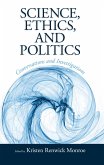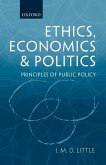Recovering from its initial shock and resulting total absorption in the Watergate political scandal, the United States in the mid-1970s began to address itself to the moral implications of its politics, both national and international. The national concern with political values provided the 1976 presidential and congressional elections with perhaps the single most-discussed issue and continues to influence a generally more scrutinizing approach toward national policy. Are we using the best system of values to examine the nation's political problems? Must we forsake idealism for realism? These are two questions that Kenneth W. Thompson systematically discusses in his penetrating examination of the role that values play in America's political relations with the other nations of the world.In an effort to establish a common denominator for solving global problems, Thompson provides three major perspectives for policy: morality (what is right), power (what gains the most), and functionalism (what works the best to solve the problem), and he demonstrates the necessity for all three. As vice-president of the Rockefeller Foundation, Thompson was in charge of international cooperation in agriculture, education, and health in less-developed countries. In this position he gained firsthand knowledge of functionalism, which, he points out, can be practiced within the framework of power and ethics.Thompson says the issue of power -- particularly the United States' power -- in the coming century demands that nations act in a moral and rational manner. He reminds us that although experience is a competent guide, there is also much to be learned from the change that so dramatically confronts society as it moves into a world of interdependence.
Bitte wählen Sie Ihr Anliegen aus.
Rechnungen
Retourenschein anfordern
Bestellstatus
Storno








